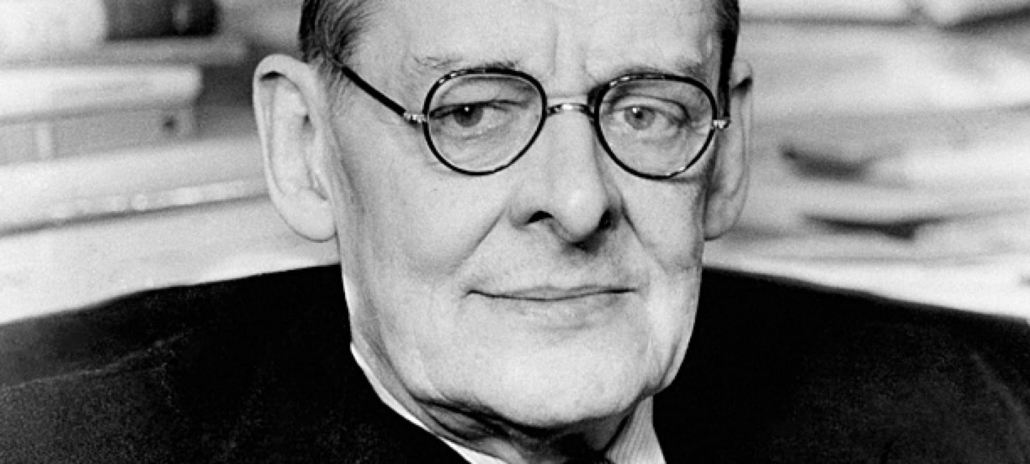T. S. Eliot (1888-1965)
Thomas Stearns Eliot was an American-born, British, poet, essayist, playwright, critic, now regarded as one of the twentieth century’s major poets. He received more rewards than almost any other writer of the past two centuries, including the Nobel prize, the Dante Gold Medal, the Goethe Prize, the US Medal of Freedom, and the British Order of Merit.
Eliot is best known for his great modern 20th century poem, The Waste Land. Other poems that distinguish his work are Ash Wednesday, The Lovesong of J Alfred Prufrock, The Four Quartets, and the ever-popular (particularly among children) Old Possum’s Book of Practical Cats. His plays – verse dramas – Murder in the Cathedral and The Cocktail Party – are among the landmarks of 20th century drama.
The Waste Land (1922) is widely regarded as a central text of modernism and has frequently been described as the most important poem of the 20th century. Although its experimentalism is demanding, making it difficult to understand without hard work, it has fundamentally changed the ways in which poetry is written and read. It is crucial to an understanding of modern culture and a continual challenge to readers to re-evaluate how they think about the world. The poem resonates on every continent. In South America, Jorge Luis Borges wrote a significant essay on ‘The Eternal TS Eliot’, while the Mexican poet and critic Pedro Serrano likes to align Eliot with one of his most important Mexican readers, the great poet Octavio Paz.

Photograph of T. S. Eliot
The Waste Land is famous for its obscure nature—its constant movement between satire and prophecy; its abrupt changes of speaker, location, and time. This structural complexity is one of the reasons that the poem has become the model for modern literature, together with a novel published in the same year, James Joyce’s Ulysses.
Eliot was a spokesman for the 20th century. His poetry expresses the fragile psychological state of human beings in the 20th century. It was a time of traumatic transition: from the Victorian ideals to the modern era via the First World War. Eliot strived to capture the transformed world – fractured and alienated. The aftershocks of the war directly contributed to the dissolution of the British Empire. Eliot saw society as paralysed and wounded, and he believed that culture was crumbling and dissolving. The Love Song of J. Alfred Prufrock (1917) demonstrates this sense of indecisive paralysis as the narrator wonders whether he dare eat a peach or change something. Human beings’ damaged state prevented people from communicating with each other, an idea that Eliot explored in many works.
Eliot’s influence goes way beyond England and English poetry. His poems, particularly The Waste Land, Ash Wednesday, The Four Quartets, and The Hollow Men powerfully influenced the poetry of two of the most significant post-war Irish poets, Martin O’Direain and Sean O’Riordain. Eliot influenced, among many others, Ezra Pound, Virginia Woolf, William Gaddis, Hart Crane, Ted Hughes, Seamus Heaney, James Joyce, Geoffrey Hill.
Read biographies of all of the 30 greatest writers ever >>




Leave a Reply
Want to join the discussion?Feel free to contribute!